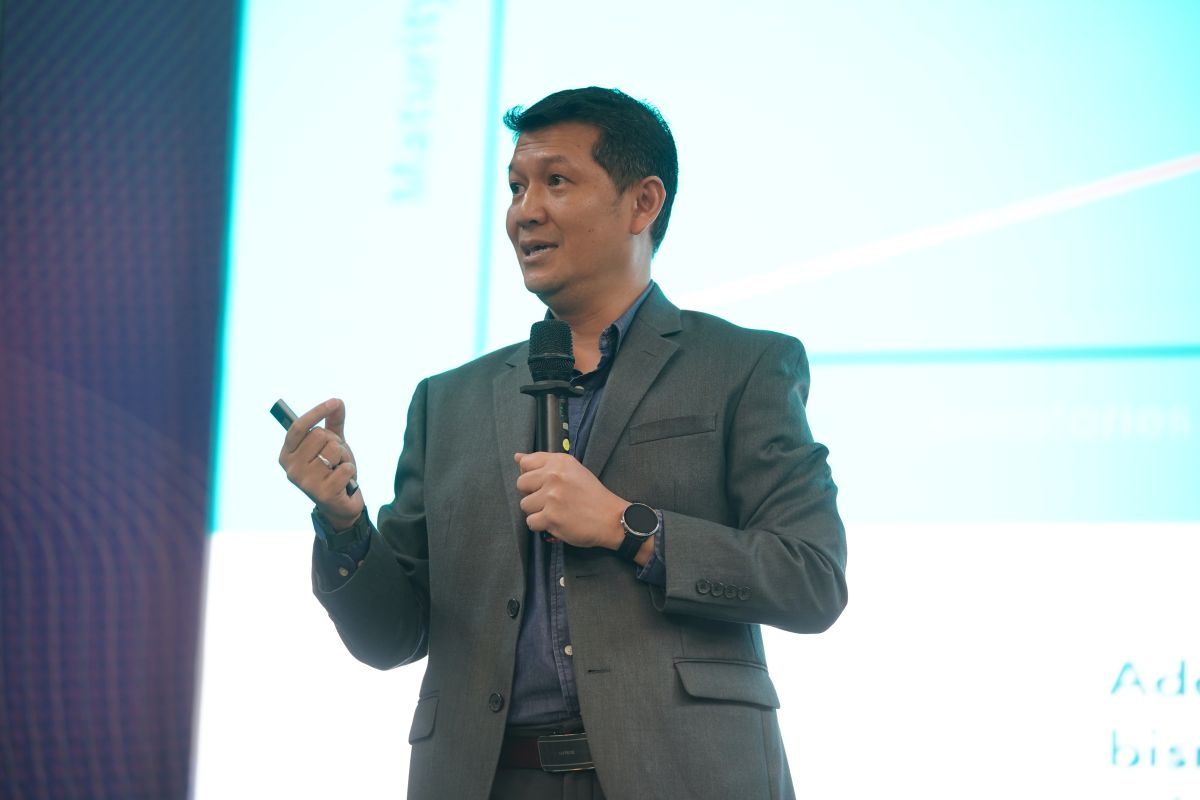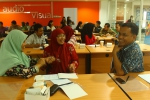LPPM of ITB Conducted a Workshop on Writing Journals
By Adi Permana
Editor Adi Permana

LPPM ITB held a “Workshop by JICITRA: Skill up Technical Writing” on Wednesday (9/3/2022). The purpose of this workshop was to educate the participants on technical matters related to writing journal publications. This workshop invited Sybrand Zijlstra, a ITB Journals copyeditor since 2012, as the guest to explain how to create high-quality academic writing.
As a professional editor, Zijlstra said that academic writing must reflect scientific conventions with concrete principles. Therefore, the information presented must be as correct, accurate, concise, thorough, and organized as possible. “Every part in the text must relate to the central thesis or question underlying its foundation for study”, he added. He also stated that “text must stick to the point”.
Each journal has its own set of guidelines that dictates how texts are structured and formatted. These guidelines include diction, spelling, typography, reference format, and more. Additionally, the process of writing a journal cannot be done easily without reading the guidelines in advance. To simplify the process, Zijlstra advised assuming the work is to be presented to a certain person as a reader. This can increase the motivation in creating and arranging a topic flow into its spoken form.
The second advice Zijlstra shared is to simply write a lot. By writing regularly and continuously, the ability in writing based on the guidelines will be greatly improved. In addition, the writing process will be much faster, since it takes time and experience to adapt to the flow of writing. Zijlstra explained that there are several tools available to help write academic publications, such as Microsoft Word and Grammarly, with each having its own editor, synonyms, and track-changes functions. “Google itself is one example of tools that is widely used for searching and translating words,” he added.

Journal translations from Indonesian to English and vice versa has been a recurring procedure in writing academic publications. Zijlstra underlined the importance of conveying the same information along with its implications in both languages. However, errors are often made due to differences in grammar and syntax. Some examples include the miswriting of articles, singular or plural objects, incorrect use of syntax, verb tenses, and prepositions.
With this workshop, participants were not only taught to pay attention to the method of writing academic publications, but also to arrange a smooth flow of writing in both English and Indonesian.”Writing academic publications is indeed complex. In the end, it all depends on what mindset you have established in yourself,” Zijlstra concluded.
Reporter: Ruth Nathania (Environmental Engineering, 2019)
Translator: Ariq Ramadhan Teruna (Faculty of Industrial Technology, 2021)



.jpg)

.jpg)



